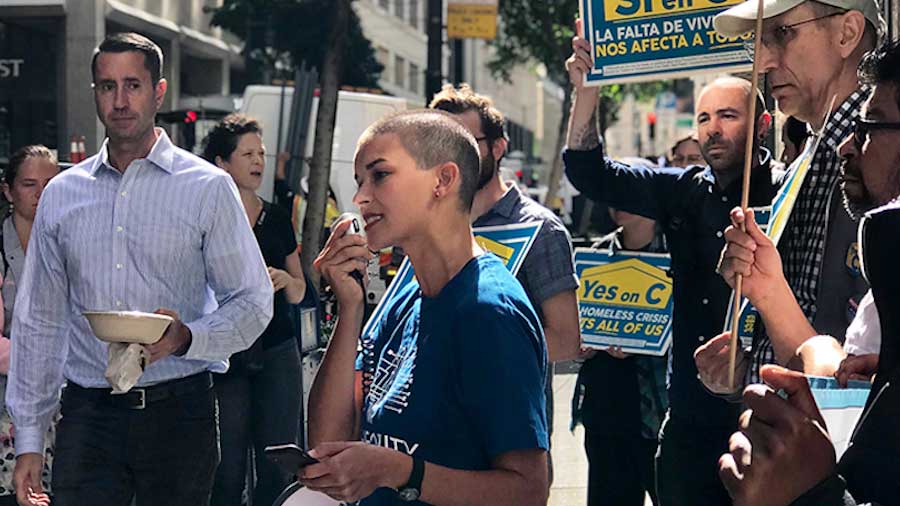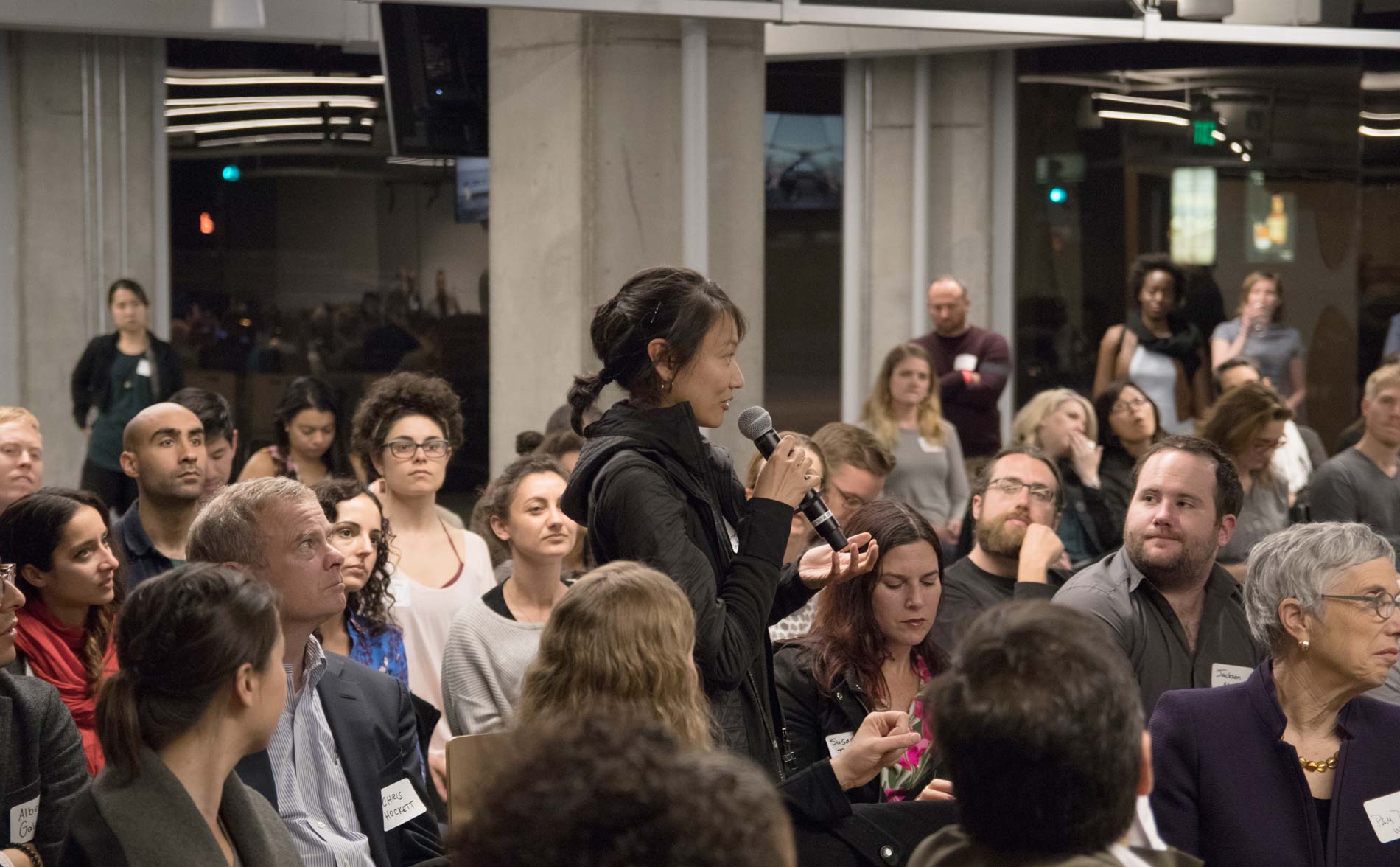TechEquity Collaborative is moving the industry toward justice and equity leadership.
A pop-up alert on Melissa Ingle’s phone said her access to company systems had been blocked. This is how she learned she had been let go from her job as a senior data scientist at Twitter.
“I was terrified. I was in shock,” said Ingle, who had been enjoying a Saturday at the mall with her daughter and a friend. A few hours later, an email informed her she would be paid through Monday. No advance warning. No severance. Just the panic of a single parent wondering how she would get by in San Francisco, one of the world’s most expensive cities.
Ingle was among thousands of workers laid off at Twitter, now known as X, in November 2022. It was part of a tidal wave of layoffs throughout the tech sector that came crashing down hardest on temporary and contract workers like Ingle, who had few, if any, labor protections.
Giving a voice to this shadow workforce and fostering a tech industry that creates economic prosperity for all is the mission of TechEquity Collaborative. The nonprofit responded to the job cuts by supporting community organizations working on a proposed amendment to California law that would extend layoff protections, including 90 days advance notice, to contract workers.
Catherine Bracy, CEO and Founder of TechEquity Collaborative, gives an overview of the organization’s mission to mobilize tech workers and companies to advance structural change that addresses economic inequity at its roots.
The use of temps and other forms of contingent employment in tech has grown in recent years at major companies such as X, Google, and Microsoft, eclipsing the number of direct staff in some cases.
Contractors are easier for companies to fire and they are paid less than employees who do the same work. They also are disproportionately women and from marginalized groups, according to TechEquity. Ingle, for instance, is a trans woman.
Paid time off, health insurance, and other benefits are also rare for contract workers--and they have limited career mobility, according to research by TechEquity’s Contract Worker Disparity Project.
“What I really admire about TechEquity Collaborative, which works to advance equity and justice in technology, is their relentless focus on addressing the real harms that people face due to the tech industry and its byproducts, while amplifying the voices of contract workers, tenants, Dalits (members of the lowest-ranked caste in India’s social hierarchy system), and many others so they can better fight for the rights they deserve,” said Harlan Yu, Executive Director of Upturn.
Excluded From Tech Boom
TechEquity was founded in 2016 by Catherine Bracy, a civic technologist. She developed the idea after witnessing her Oakland neighbors protesting plans by Uber to buy an old Sears department store across the street from her apartment and move 2,500 jobs there.
“The reaction was telling,” Bracy said. “Marginalized people who lived in West Oakland knew they weren't going to benefit from this new economic opportunity, and that it was more likely to create a threat to their livelihoods,” by causing rents to rise and displacing long-time residents—without an evident upside.
Understanding and mitigating those threats to people left out of the tech boom is a major focus for TechEquity.
Understanding and mitigating those threats to people left out of the tech boom—teachers, nurses, construction workers—is a major focus for TechEquity. Housing, Bracy said, was “the linchpin issue.”
That focus led TechEquity to investigate the technology landlords use to screen potential tenants and whether it worsens discrimination. The organization is trying to reverse engineer the software’s algorithms, which are secret.
“We suspect that they're violating fair housing laws, but it's really impossible to know without having that data,” Bracy said. “We've got to create an evidence base before we can really do anything about it.”

TechEquity Collaborative Director of Communications Marion Wellington speaks to a crowd in support of Prop C, a 2018 plan to fund homelessness services in San Francisco.
In 2019, the group helped pass a California law protecting tenants from unfair rent increases and unjust evictions. TechEquity also rolled out an easy-to-use online rent calculator to help residents determine if an increase was illegal.
From there, advocating for workers became a centerpiece of the group's work. TechEquity helped pass California’s Pay Transparency for Pay Equity Act, which requires companies to share salary ranges in job descriptions.
TechEquity also amplifies the stories of workers like Ingle, who TechEquity’s proposed Protect Laid-Off Workers Act, the California bill to expand layoff protections.
‘Fair Pay for Fair Work’
Those stories shed light on how much the tech sector relies on contingent workers to perform essential functions. At one point in 2019, contingent workers outnumbered direct employees at Google, which had roughly 121,000 temps and contractors, compared with 102,000 direct employees, according to a New York Times investigation.
“We hear from contractors a lot that one of the reasons they choose to do contracting is because they feel it's their only way to get a foot in the door,” said TechEquity Chief Programs Officer Samantha Gordon, a former labor union organizer. In most cases, that hope is unfounded, she said.
Finding a direct employment position can be extremely difficult, even for highly qualified professionals such as Ingle. After her layoff from X, she applied for a job that required multiple interviews, a timed coding challenge, and the preparation and presentation of a full machine learning data analysis.
“I just want people to get fair pay for fair work.”
It took weeks. The job went to someone else.
Ingle eventually landed another contract position and remains hopeful that the work of TechEquity and others will have an impact.
“I just want people to get fair pay for fair work,” she said. “That's really what this is all about for me.”
MacArthur has provided $450,000 in grants to TechEquity Collaborative between 2022 and 2023 for general operating and project support.




